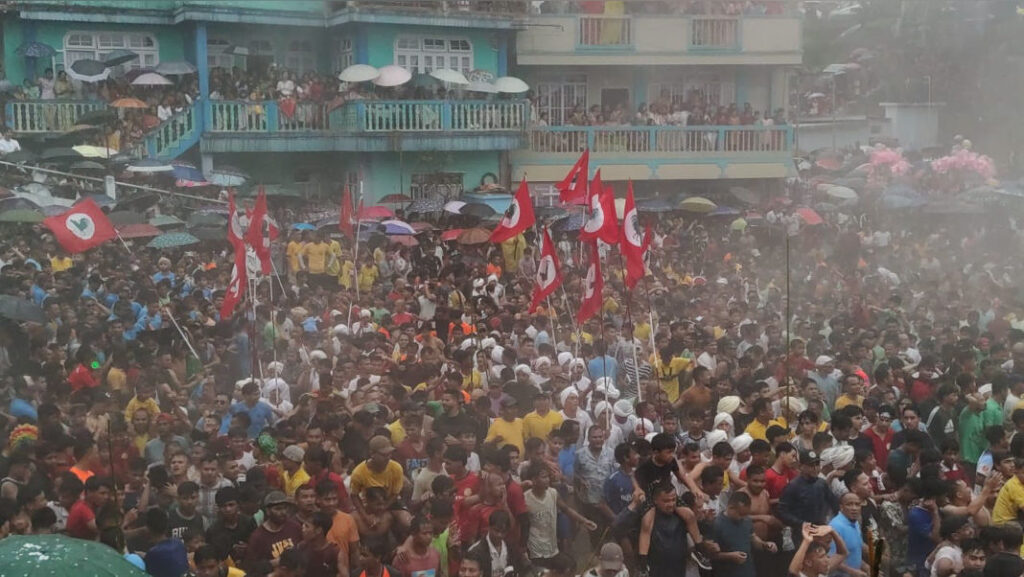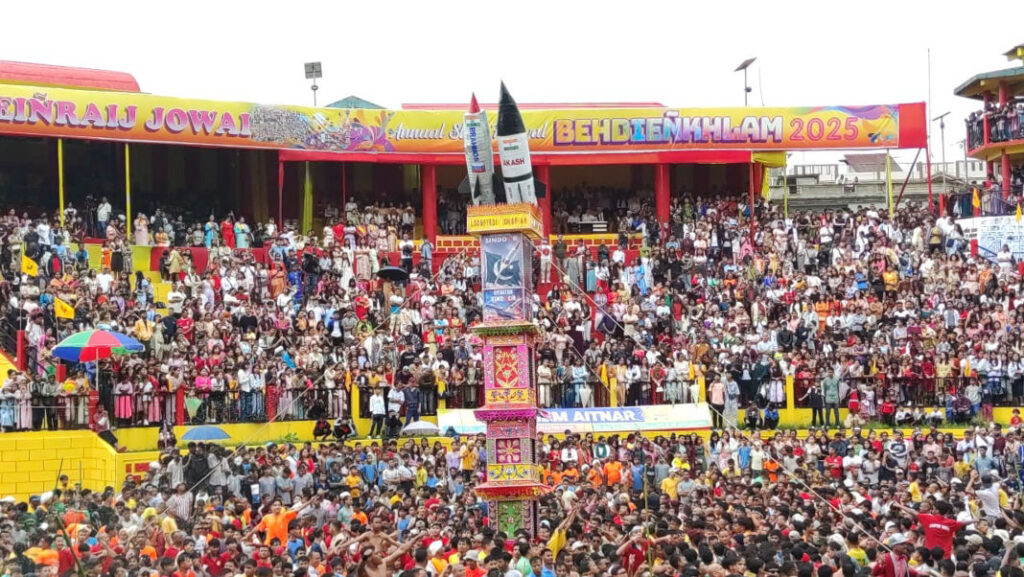Shillong, July 14: The annual four-day Behdieñkhlam festival of the Niamtre faithful of the Pnar tribe from Jaintia Hills in Meghalaya concluded on Monday, with thousands of devotees taking part at the sacred ‘Aitnar’ a (sacred pool).

During the festival, revellers participated in ritualistic expressions meant to overcome the destructive forces of nature, drive away social evils including diseases, and invoke God’s blessings for a good harvest.

Behdieñkhlam is considered one of the most important festivals in Meghalaya. It is celebrated every year in mid-July, after the sowing season is over.
In literal terms, ‘Khlam’ means ‘plague or pestilence’, while ‘Beh Dieñ’ means to drive away the plague and social evils using sticks and religious fervour.
A main highlight of the festival is the making of the Dieñkhlam—rounded, polished and straight tree trunks felled from nearby forests and brought into Jowai town. Notably, this year, the trees were only felled after performing religious invocations and planting saplings around the area to ensure ecological balance.
Earlier on Monday, at the Aitnar, the ‘Symbood Khnong’, a long log, was brought in. Thousands thronged the site to touch it, believing it would bring them good health and blessings.
It is widely believed that touching the Khnong protects one from illness and brings prosperity in work and business.
According to the Niamtre faith, Behdieñkhlam is not only about driving away sickness but also about removing social evils that afflict society.

Youth from various localities also displayed their creativity by erecting gaily coloured “Rots”—tall bamboo structures decorated with coloured paper and tinsel.
On the final day of the festival, these Rots (also known as Rongs) were brought to the Aitnar. Each carried powerful messages about protecting the environment, preserving Mother Earth, and combating social issues.
This year, some of the most striking Rots conveyed messages such as saluting the Indian military for Operation Sindoor, calls for environmental protection, and reflections on the impact of technology and artificial intelligence.
The climax of the festival was the carrying of the ‘Khnong Blai’, a sacred log, by the Niamtre faithful to Aitnar. People rushed to touch it, believing it would ensure good health and prosperity in their personal and professional lives.
In the evening, the traditional football match known as ‘Datlawakor’ was played using a rounded wooden ball. Two teams representing the upper and lower valleys of the Myntdu River—Langdoh and Sangot Paswet—competed. The team that pushes the ball to its side is declared the winner and is believed to be blessed with a good harvest for the year.
On the final day of the festival, Deputy Chief Minister Sniawbhalang Dhar attended the celebrations as Chief Guest, alongside Ampareen Lyngdoh, Kyrmen Shylla and other dignitaries.

